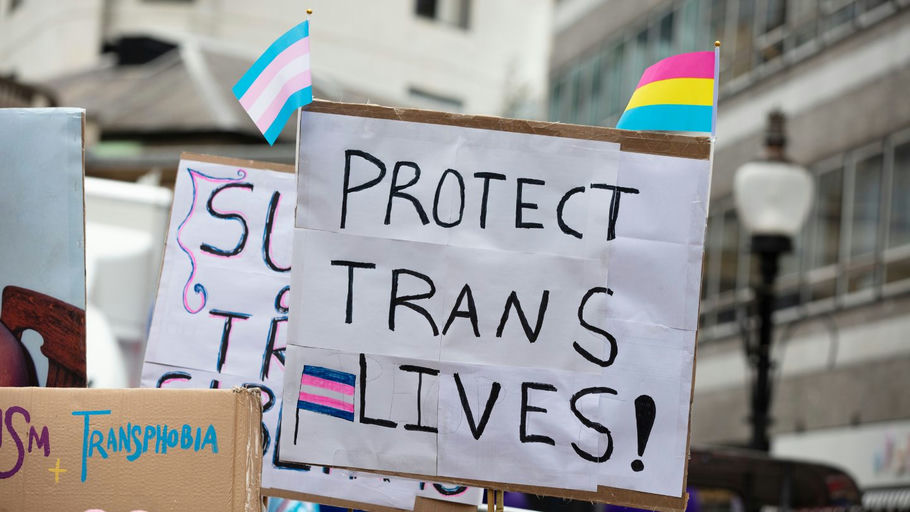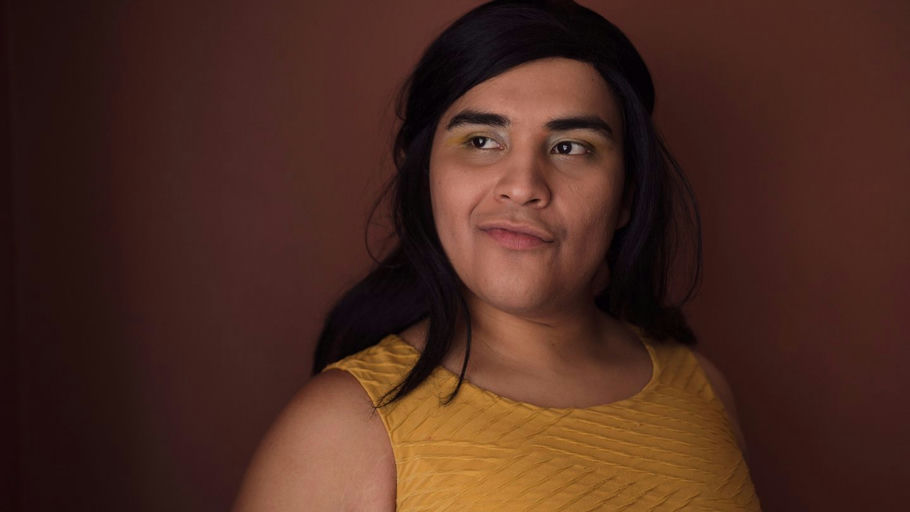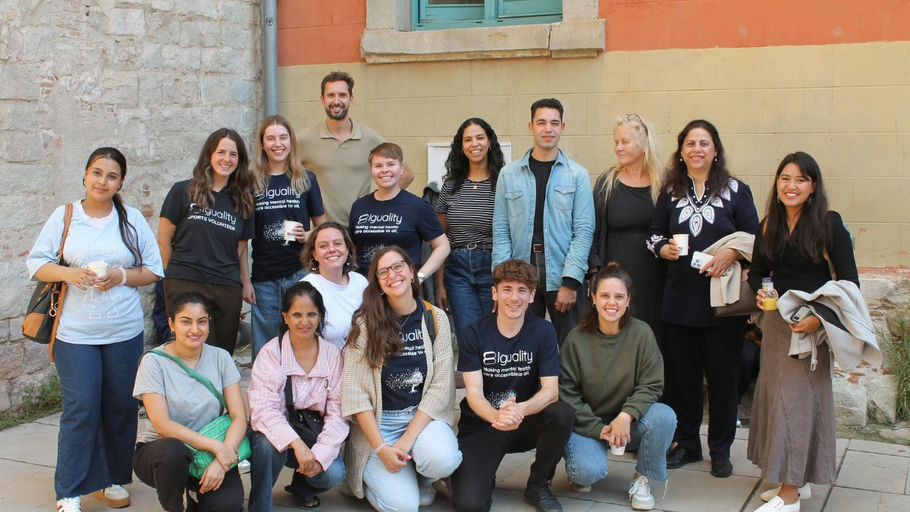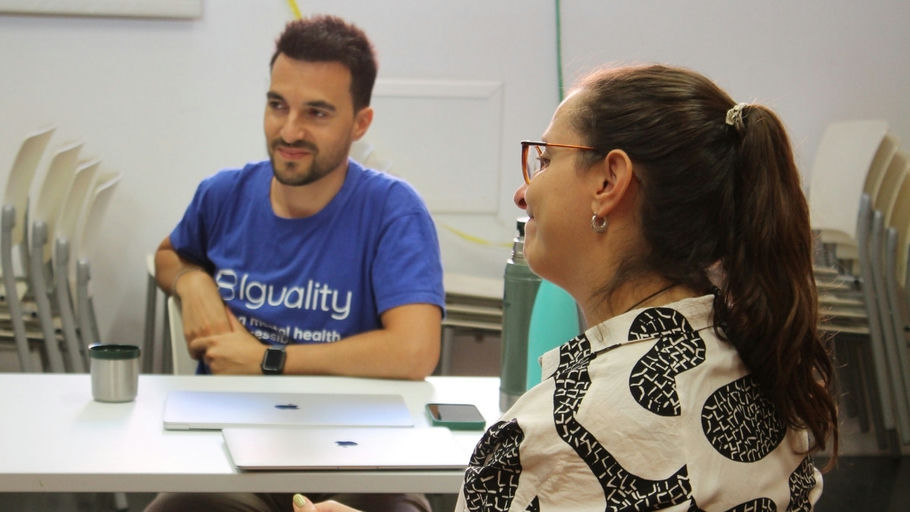
13 листопада 2025 року


Mental health challenges are a common part of the human experience. Globally, around one in three people experience some mental health disorder at some point in their lives, and by the age of 75, that number rises to roughly one in two (McGrath et al., 202300193-1)). However, research consistently reports LGBTQ+ people to have an elevated risk of mental disorders (Plöderl & Tremblay, 2015), with a recent meta-analysis of cross-national data (Gmelin et al., 2022) finding LGB people to be two to three times more likely to experience a mental health disorder – and transgender individuals appear to suffer an even higher likelihood (Nowaskie et al., 2013; Su et al., 2016).
For example, major depression affects around 10% of the general population over a lifetime, roughly 7% of men and 14% of women (McGrath et al., 202300193-1)). In contrast, a global meta-analysis found a 32% lifetime prevalence among LGBTQ+ people (Cai et al., 2024). When turning to Spain, the available figures are somewhat different in nature, which makes direct comparisons less straightforward. Spain’s 2023 Mental Health Report by Confederación Salud Mental España and Fundación Mutua Madrileña (CSME & FMM, 2023) also indicates a higher prevalence of mental health challenges for LGBTQ+ people, but as it relies on subjective evaluations rather than diagnostic measures, it reports overall considerably high numbers; stating that around 55% of LGBTQ+ people and 42% of the general population suffer from depression. Meanwhile, Spain’s 2023 National Health Survey (Instituto Nacional de Estadística, 2025) suggests that approximately 15% of all people aged 15 and older experience some form of active depressive symptoms, with nearly 8% meeting criteria for major depression, aligning with global analyses. Therefore it is reasonable to assume that subjective evaluations likely inflate the prevalence estimates.
The statistics regarding suicidal ideation and suicide risk (CSME & FMM, 2023), which are more comparable also when based on subjective evaluation, do provide clearer grounds for comparison: while 14.5% of the general population in Spain report having thought of or attempted suicide, this figure rises to 32.1% for LGBTQ+ individuals (CSME & FMM, 2023). Thus, although direct comparisons are limited, the available evidence suggests that the situation in Spain mirrors global patterns.

The reason for this higher prevalence, however, is not queerness itself: sexual and gender diversity are normal human variations and do not impair psychological functioning or wellbeing (World Medical Association, 2023; 2025). The Minority Stress Model (MSM) (Meyer, 1995; 2003) helps us understand why these disparities may exist. Extensive research in the field of physical and mental health has shown that excess stress, in general, has negative effects on health, both through biological and psychological processes (see review O’Connor et al., 2021).
The MSM distinguishes the added stress that LGBTQ+ individuals face as a result of their minority position: stigma, discrimination and prejudice create a stressful and sometimes even hostile social environment, which, in addition to the typical stress that any individual experiences, is bound to affect one’s mental health. These minority stressors can be both external and internal conditions or events. More concretely, for LGBTQ+ people the minority stressors have been identified as including discrimination and violence (external stressors), and expectations of rejection and discrimination, concealment of identity, and internalized sexual stigma (internal stressors). (Meyer, 1995; 2003)
While aspects of navigating one’s queer identity (e.g., coming out or transition-related decisions) can be challenging for mental health, these difficulties arise largely from social stigma and barriers rather than from queerness itself. Minority stress does not mean that being LGBTQ+ is inherently difficult, but that stigma, prejudice and discrimination bring additional stressors. These stressors – be they daily microaggressions, systemic discrimination or the internalization of negative beliefs – accumulate over time, and this additional layer of psychological strain can lead to higher rates of mental health challenges, such as anxiety and depression. This positive association between minority stressors and negative mental health outcomes has been consistently demonstrated by research (e.g. Dürrbaum & Sattler, 2020; Eaton, 2014; Sattler et al., 2017).

Despite significant advances in LGBTQ+ rights in recent decades, the minority stress aspect remains relevant today. At a global level, 64 countries continue to have laws criminalizing homosexuality, with some even carrying the death penalty, and currently only 38 countries have equal marriage rights for same-sex couples. In the EU LGBTIQ Survey III by the European Union Agency for Fundamental Rights (FRA, 2024), more than 1 in 3 respondents (36%) reported having felt discriminated against in employment, healthcare, education, housing or other areas of life. The results of the same survey place Spain at the EU average level with 37% of respondents reporting discrimination. Also, in Barcelona specifically, LGBTQ+-phobia is amongst the most commonly reported reasons for discrimination, making up 20% of all reported discrimination incidents (Ayuntamiento de Barcelona, 2024).
There are differences in discrimination also within the LGBTQ+ community, with people of transgender identities (= gender identity differs from the sex assigned at birth) facing even harsher discrimination compared to cisgender (= gender identity aligns with the sex assigned at birth) LGB people. For instance, the percentage of people reporting discrimination in EU countries jumps to 58% for trans women and 65% for trans men (FRA, 2024). More discrimination and violence are reported by trans people across Europe, independently of the countries’ rankings on LGBTQ+ rights (Evje et al., 2024).
Especially with the recent increasing waves of transphobic discourse, it is important to note that negative attitudes towards trans people pose a fear of not only discrimination, but also direct violence. For example, 63% of trans people in Spain have, to at least some degree, avoided expressing their gender through their physical appearance and clothing for fear of being assaulted, threatened or harassed (FRA, 2024). Thus, it is not surprising that some studies find transgender individuals to be even two to nearly four times more likely than cisgender LGB individuals to report depression and suicidal thoughts (Nowaskie et al., 2013; Su et al., 2016).

While the burden of minority stress should not be seen as something to fix with simply more mental health care, the role of quality health care services is not to be undermined. With systemic inequality being the creator of these disparities, systemic inclusion can be one way to help address them. A recent North American review (Rees et al., 2020) identified LGBTQ+ people’s experiences of mental health care services as unfortunately reinforcing stigma and the attending professionals as often lacking knowledge about LGBTQ+ people’s needs.
The results also pinpointed the need for mental health care that promotes equity, inclusion, and respect for diversity. Likewise, European research (Baiocco et al., 2022; Zeeman et al*.*, 2019) calls for not only structural change but also the development of culturally competent and compassionate LGBTQ+ training for health and social care professionals, to better equip health care services to accommodate the needs of LGBTQ+ people. With certain populations facing an elevated mental health burden, ensuring that health and support services are truly inclusive and accessible is essential.
The recent statistics remind us that discrimination continues to create significant psychological strain and thus shapes mental health outcomes, with LGBTQ+ people bearing a higher risk of suffering mental illnesses. Recognizing these mental health disparities and the role of minority stress is necessary for mental health professionals and policymakers to design effective prevention and intervention programs. Increased knowledge and understanding among the general public is likewise important to fight stigma, and promote inclusion, diversity and equity – change happens not only slowly at a larger systemic level, but also in everyday interactions.
Photos by Nolwen Cifuentes, Crystal Sing & Viktor Makhnov.



Будьте в курсі нашої роботи, ініціатив з популяризації ментального здоров'я, наших останніх публікацій і, звичайно, усіх наших (спортивних) подій, підписавшись на нас у соціальних мережах або на нашу розсилку.
Будьте в курсі нашої роботи, ініціатив з популяризації ментального здоров'я, наших останніх публікацій і, звичайно, усіх наших (спортивних) подій, підписавшись на нас у соціальних мережах або на нашу розсилку.

13 листопада 2025 року

18 жовтня 2025 року

6 жовтня 2025 року

19 вересня 2025 року

6 серпня 2025 року

6 серпня 2025 року